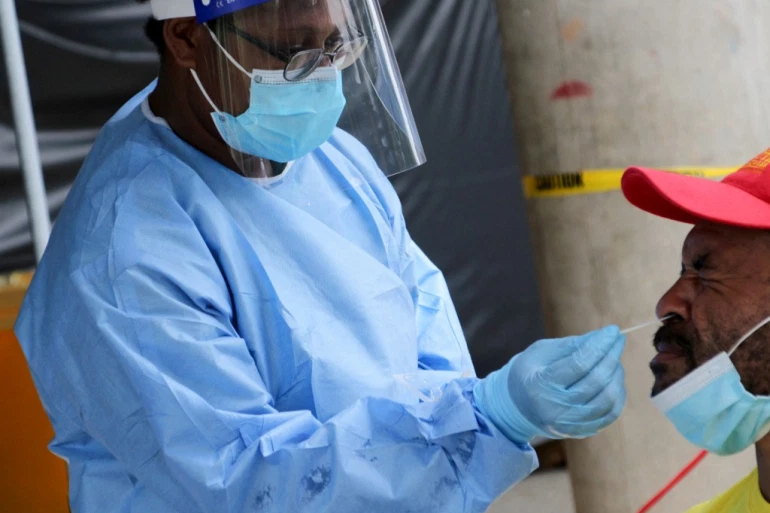
Geneva, December 4 (RHC)-- The Omicron variant has continued to spread fear and uncertainty as infections from the mutant coronavirus cropped up in more corners of the globe, with one official lamenting that the wait for more scientific information on its dangers feels like “an eternity.”
Meanwhile, the dominant Delta variant is still creating havoc, especially in Europe, where many countries are dealing with a surge in infections and hospitalisations and some are considering making vaccinations mandatory.
Much is still unknown about the highly mutated Omicron variant, including how contagious it is and whether it can evade vaccines. But governments have rushed to impose travel bans and other restrictions in hopes of containing it.
At least 24 countries, including much of Western Europe and the United States, have recorded cases of the Omicron variant, and the number is likely to rise, according to the World Health Organization.
Nigeria and Saudi Arabia reported Omicron infections on Wednesday, marking the first known cases in West Africa and the Persian Gulf region. The U.S. also reported its first case of the latest variant on Wednesday in a traveller who returned to California from South Africa.
Showing an increasingly complicated web of contagion, Japan reported an Omicron case in a man who had come from Peru via Qatar.
European Commission President Ursula von der Leyen said it will take two to three weeks to gain a fuller understanding of the Omicron variant. “This is, in normal times, a short period. In pandemic times, it’s an eternity,” she said.
South African researchers alerted the WHO to Omicron last week. It is not known where or when the variant first emerged, though it is clear it was circulating in Europe several days before that alert.
Nigeria initially stretched that timeline back even further on Wednesday, saying it found the variant in samples collected in October, but it later corrected that to say the cases were detected in travellers who arrived in the past week.
Many countries have barred travellers from Southern Africa, and some have gone further. Japan has banned foreign visitors and asked international airlines to stop taking new reservations for all flights arriving in the country until the end of December.
On Wednesday, the WHO warned that blanket travel bans are complicating the sharing of lab samples from South Africa that could help scientists understand the new variant. UN Secretary-General Antonio Guterres on Wednesday slammed the recent travel bans as “unfair” and “ineffective.”
“With a virus that is truly borderless, travel restrictions that isolate any one country or region are not only deeply unfair and punitive – they are ineffective,” Guterres said at a news conference, calling instead for increased testing for travellers.
The U.S. is working towards requiring that all air travellers to the country be tested for COVID-19 within a day before boarding their flights, up from the current three days. World leaders continued to say that the best way to contain the pandemic remains vaccinations.
For the first time, von der Leyen said European Union nations should consider making vaccinations mandatory, as several have done for certain sectors, or as Austria has done overall.
Altogether, 67 percent of the EU’s population is vaccinated, but that relatively high rate has not stopped several countries from seeing surges.
Meanwhile, South Africa’s new cases of COVID-19 nearly doubled in a day, authorities reported on Wednesday, signalling a dramatic surge in the country. New confirmed cases rose to 8,561 from 4,373 a day earlier, according to official statistics.

